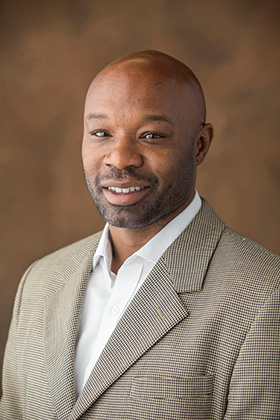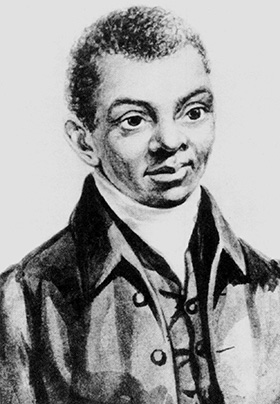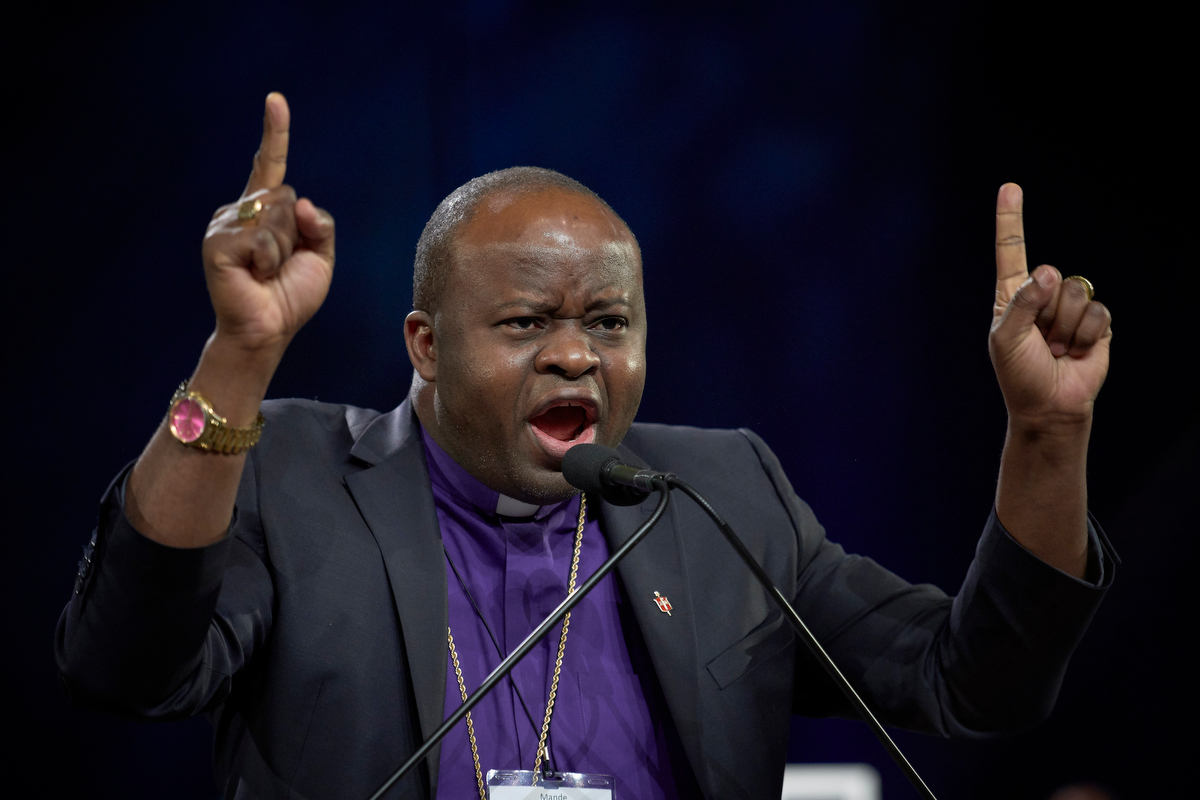Key points:
- Speakers at the 55th General Meeting of Black Methodists for Church Renewal were leery of what a possible splintering of The United Methodist Church will mean for Black churches, based partially on the results of past mergers and splits.
- Bishop Mande Muyombo, keynote speaker, urged African American United Methodists and their cohorts in Africa to come together as General Conference approaches in 2024.
- The Rev. Antoine C. Love was elected as the 2023 chair of the organization that advocates for the interests of Black United Methodists.
Amid tragic stories of racism and poetic speeches on the strength and relevance of the Black church, members of The United Methodist Church’s official Black caucus were encouraged to look out for their best interests as The United Methodist Church moves toward separation.
Speakers during the 55th General Meeting of Black Methodists for Church Renewal lamented the historical treatment of Black Methodists and expressed leeriness of what a possible splintering of the denomination will mean for Black churches.
BMCR elects 2023 officers
During its 55th General Meeting, Black Methodists for Church Renewal elected its slate of 2023 officers by a 96% to 4% margin.All the candidates ran unopposed. The Rev. Antione C. Love, assistant to the bishop in the Baltimore-Washington Conference, was re-elected chair. He also moderated much of the caucus meeting.
The other officers elected were:
Vice Chair: Deborah E. Bass
Treasurer: Deacon Gail Douglas-Boykin
Secretary: Stacie Hawkins
The 2023 budget was not approved during the meetings because an auditor had yet to review it.
The meeting was held virtually April 28-May 1 and featured speakers from the African American Heritage Center, Africa University, Black Clergywomen of the United Methodist Church and many of the denomination’s general agencies.
Bishop Mande Muyombo delivered the keynote speech. He leads the North Katanga Episcopal Area, which includes United Methodists in parts of Congo and in Tanzania. He focused on the relationship between African and African American United Methodists leading up to General Conference. The United Methodist Church’s top lawmaking assembly — now scheduled for 2024 — faces multiple proposals for separation over LGBTQ inclusion.
“I’m calling upon Africans and African Americans to build stronger relationships and work together in their quests for racial equality and ending colonialism,” Muyombo said.
“The political war that has been burning for decades within The United Methodist Church in the USA is increasingly doing great harm to the communities I’ve made a sacred vow to serve across the African continent,” he said. “Colonial mercenary tactics are being used with the aim of destabilizing our conferences and exploiting our worth of delegate numbers to win power and property at our denomination’s next General Conference.”
The relationship between racism and colonialism should push United Methodist Africans and African Americans to draw closer and work together strategically, Muyombo said.

The Rev. Herbert R. Marbury, associate professor of Hebrew Bible at Vanderbilt Divinity School, presented two impassioned Bible studies tied to the meeting’s theme, “We Are Strong. We Are Relevant. We Are Here.”
He said many progressives and conservatives have made decisions about the future of United Methodism, with some conservatives likely to join the new theologically conservative breakaway denomination that launched May 1 and others planning to stick with The United Methodist Church. “I’m not saying here that we need to choose sides,” Marbury said. “But I am saying … that we do need to choose.”
Black United Methodists should choose “us,” he said.
A vital step to do this is coming up with the questions that matter to Black United Methodists about the future of the church, and asking them.
“We’ve been here for 238 years and we’re still here,” he added. “We’ve watched our churches close because of the decisions of folk who cared nothing about the Black church. … We’ve seen the property that our forbearers worked so hard to acquire sold without our consultation, and we’ve all seen the proceeds that never seem to return to the Black church.”
During one presentation, Marbury shared the story of Harry Hosier, a Black Methodist preacher “who spread the Gospel like wildfire” in the latter half of the 18th century and “was more effective than any of his counterparts, both white and Black.”

Hosier was repeatedly denied ordination, “suffered a breakdown and he died a broken man,” Marbury said. Hosier was “rejected so many times after having invested so much of himself to build American Methodism,” he added.
Bishop L. Jonathan Holston of the South Carolina Conference detailed past injustices while also highlighting the loyalty of Black church members.
“In 1939, the Methodist Church, North and South, gathered to unite and promptly segregated its Black laity and clergy,” he said. “Then in 1968, the Methodist Church gathered to unite with the Evangelical United Brethren Church and integrate, and the Black Church was set in a downward spiral of financial disintegration.
“Today, The United Methodist Church seeks to gather to separate, making the Black Church fearful that any decision made will lead to annihilation of Black expressions in United Methodism. … Our extreme loyalty and unrelenting belief that The United Methodist Church has the best interest of its Black constituency at its heart should not be taken for granted.”
Bishop Cynthia Moore-Koikoi, who jointly leads the West Virginia, Western Pennsylvania and Susquehanna conferences with Bishop Sandra Steiner Ball, pulled LGBTQ issues into the discussion.
During a speech on the theme “We Are Here,” she said, “We are queer, we are gay, we are lesbian and straight, and yes, we are here.”
Near the end of her presentation, she said, “We are here until God tells us otherwise, or Jesus comes with his kinky hair and a long, loud shout.”
Plans are to hold next year’s meeting in-person in Pittsburgh on April 13-16.
Patterson is a UM News reporter in Nashville, Tennessee. Contact him at 615-742-5470 or newsdesk@umcom.org. To read more United Methodist news, subscribe to the free Daily or Weekly Digests.



